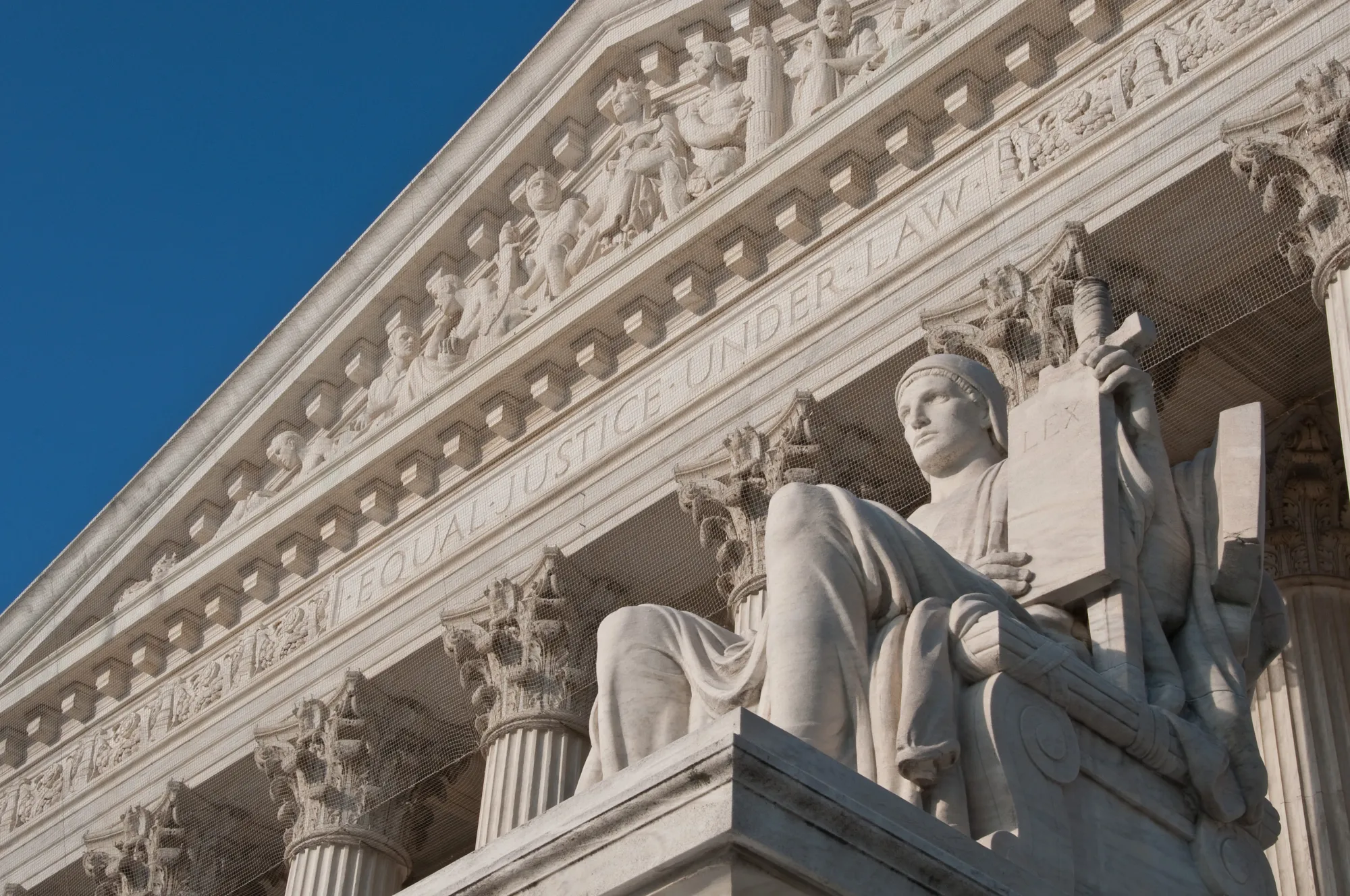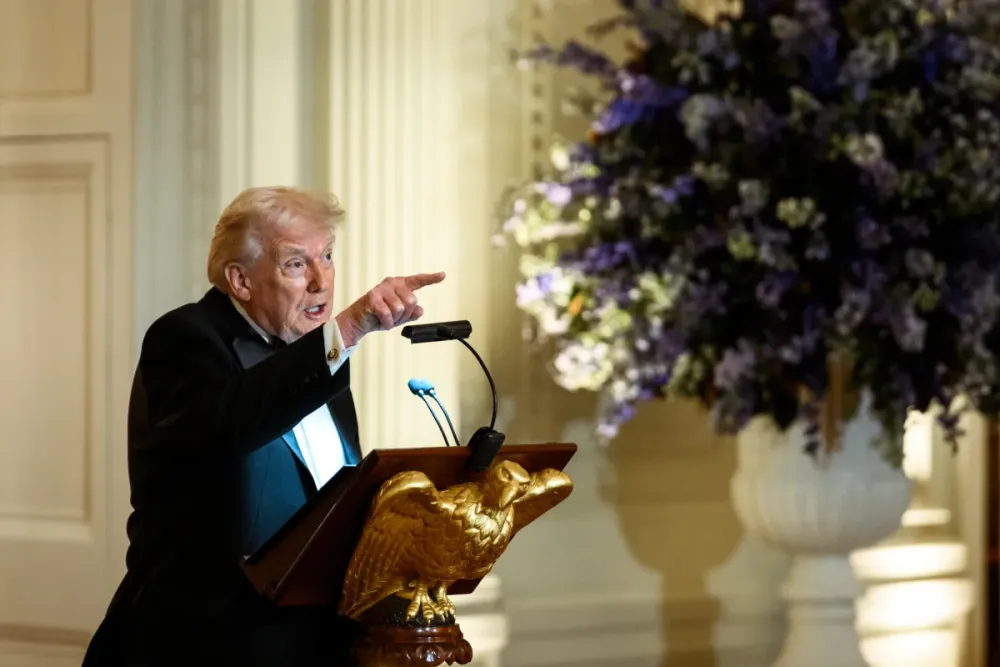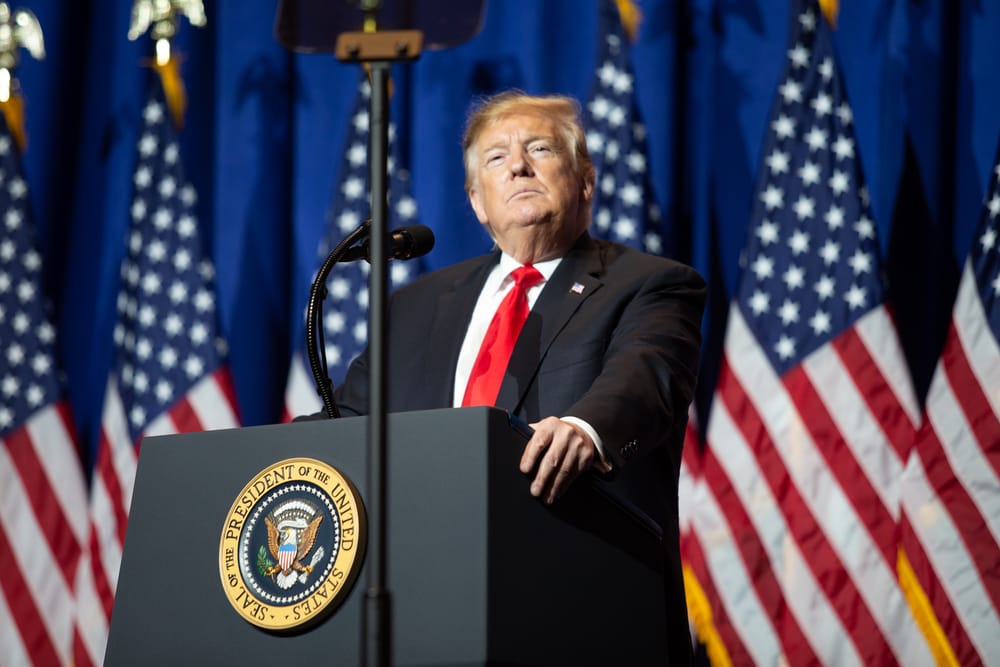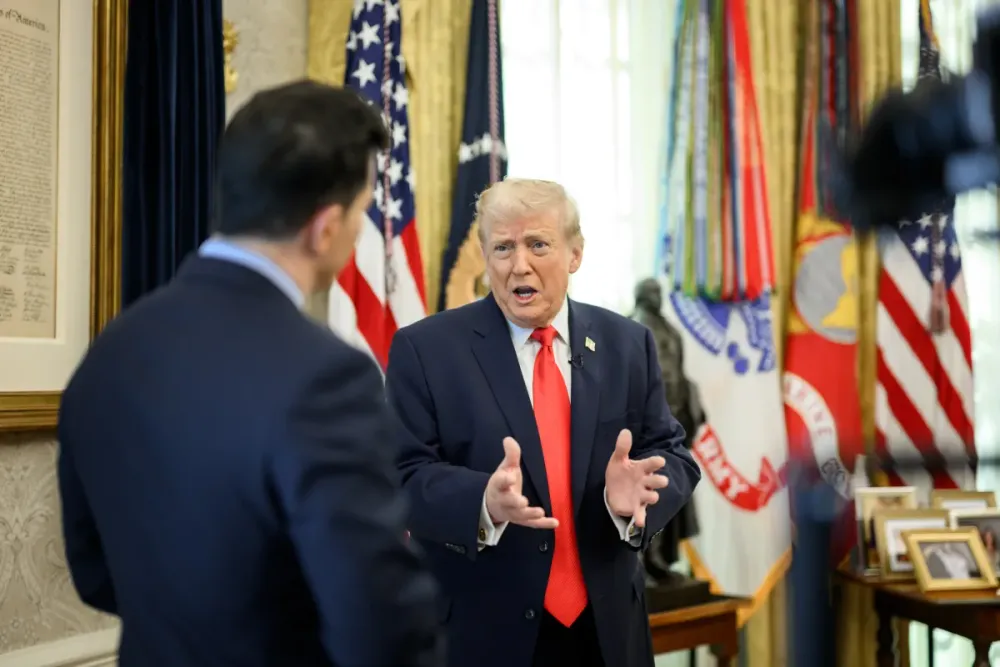
By Nick Ravenshade — NENC Media Group
October 3, 2025
The U.S. Supreme Court on Friday temporarily cleared the way for the Trump administration to revoke Temporary Protected Status (TPS) for more than 300,000 Venezuelan nationals living in the United States, issuing an unsigned emergency order that pauses a federal judge’s block on the administration’s move while the broader legal fight proceeds. The decision — which follows an earlier, similar intervention by the Court this spring — leaves tens of thousands of people who have lived and worked legally in the United States for years facing an uncertain future and renewed fears of deportation, job loss and family separation.
The order does not decide the underlying merits of the government’s bid to terminate TPS for Venezuelans; rather it restores the administration’s ability to implement its prior notices while the litigation winds through the courts. Three liberal justices signalled sharp disagreement, with Justice Ketanji Brown Jackson criticizing the Court’s use of emergency procedures to intervene — a dissent echoed in public statements from civil-rights groups and immigrant advocates who warned of “immediate and catastrophic” consequences for impacted communities.
How the ruling works and what it means now
TPS is a humanitarian program created by Congress in 1990 that allows nationals of designated countries to live and work in the U.S. temporarily when conditions in their home country — war, environmental disaster, or other extraordinary circumstances — make return unsafe. The Trump administration, through Homeland Security Secretary Kristi Noem, moved this year to terminate Venezuela’s 2021 TPS designation, asserting conditions in Venezuela no longer met the statutory standard. A federal judge in September, U.S. District Judge Edward Chen of the Northern District of California, blocked the termination after finding the administration acted unlawfully; the Supreme Court’s Friday order places Chen’s injunction on hold while appeals proceed.
Practically speaking, the decision means that the government can begin phasing out TPS protections for Venezuelans who had been covered, subject to implementation schedules in DHS notices and federal regulations. For many people, that will mean losing work authorization and protection from removal unless they can secure an alternative immigration status or relief — a prospect immigration lawyers say will be difficult for most. Government filings and public reporting put the number of Venezuelan TPS holders affected by the litigation at over 300,000; a separate but related Supreme Court stay in May had earlier cleared the way for termination for another tranche of roughly 350,000 Venezuelans. Together, these moves have dramatically narrowed the legal space that had allowed large Venezuelan communities to remain and work in the U.S. for several years.
Legal experts said the emergency order reflects the Court’s growing willingness to use its shadow docket to limit lower-court injunctions in high-profile immigration disputes, a practice that has drawn vigorous debate about institutional norms and the rights of vulnerable populations. Lawyers for TPS recipients are expected to ask the lower courts and the Supreme Court to rehear the mainland questions in full, and to press for expedited merits review and further emergency relief given the stakes for affected families.
Human cost: lives, jobs and families in limbo
For people who obtained TPS after crises in Venezuela, the program has been a de facto legal lifeline: it allowed them to obtain work permits, pay taxes, rent housing and in many cases sponsor family members for other benefits. Advocacy groups warned that losing TPS en masse would ripple beyond deportation risks: employers — from construction sites to healthcare facilities — rely on TPS holders for skilled and unskilled labor, and sudden losses of work authorization would strain local economies, reduce household incomes, and create new pressures on social services. Community leaders in Florida, Texas and New York, where many Venezuelan families live, said clinics, schools and employers are already bracing for the fallout.
The administration argues that decisions to terminate TPS are legally permitted when conditions improve or no longer meet the statutory test, and it says that the federal courts should not substitute their judgment for the expertise of the Department of Homeland Security. Supporters of the administration’s approach frame the move as restoring the rule of law and preventing indefinite temporary status from becoming quasi-permanent residency without explicit congressional action. Critics counter that the abrupt rescission of protections — particularly after years of reliance by families and employers — is arbitrary and that the administration has failed to show that affected individuals could safely return to Venezuela.
Political and societal fallout — what to watch next
The Supreme Court’s order is almost certain to sharpen political disputes in Washington. Immigrant-rights activists and Democratic lawmakers called for emergency congressional action to provide a legislative fix — permanent status or new relief — and pledged to pursue measures to protect TPS holders if they retain control of legislative levers. Republicans and administration allies have pushed back, arguing that immigration policy must respect statutory standards and that TPS is not a substitute for durable legal immigration reform. The high-profile nature of the Court’s intervention will likely increase pressure on both parties to frame short-term remedies or to accelerate long-term immigration negotiations, although prospects for swift, binding legislation remain uncertain in the current Congress.
Local governments and employers could also respond in practical ways. Some cities and states have already signalled plans to expand services — legal clinics, emergency housing assistance, and employment programs — if TPS is ultimately rescinded. Employers who rely heavily on TPS labor face compliance challenges: federal law prohibits knowingly employing unauthorized workers, raising thorny questions about payroll, staffing and continuity of operations if protection ends. Labor advocates warn of increased exploitation risk for workers left with fewer legal protections.
Internationally, the move could influence U.S. relations in the hemisphere. Venezuelan migrants and diasporas may press host governments and the United Nations for additional support, even as U.S.-Venezuela diplomatic relations remain fraught. Humanitarian organisations emphasise that mass departures to countries bordering Venezuela could create new regional strains given the ongoing economic and political crisis there. The State Department and allied foreign services will likely face questions about whether the U.S. government is prepared to coordinate contingency responses in the region.
Legal road map and longer-term implications
The litigation is likely to move fast. Plaintiffs’ lawyers will press the appeals court to reinstate Judge Chen’s injunction or to fast-track a merits hearing; if unsuccessful they may seek a full Supreme Court review. The justices’ use of emergency orders in immigration cases, including earlier stays related to Venezuelan TPS and to parole policies for migrants from the region, suggests the high court will remain central to the outcome. Analysts say even if lower courts ultimately rule for plaintiffs, the pace of litigation and potential administrative implementation in the interim could meaningfully alter lives on the ground before final legal rulings arrive.
For now, the human story is urgent and immediate: hundreds of thousands of people face the prospect of losing legal work permission and deportation relief in the coming months if the administration follows through on termination notices. The Supreme Court’s order has removed a temporary legal shield, but it has not resolved the core legal and moral questions at the heart of the dispute — questions about executive discretion, congressional responsibility, and how a society balances enforcement with the reliance interests of people who have built lives under temporary protections.
— Reporting by Nick Ravenshade. Sources: The Associated Press; Reuters; The Washington Post; U.S. Citizenship and Immigration Services Federal Register notices; SCOTUSBlog analysis.
Photo: Mark Fischer, CC BY-SA 2.0, via Openverse
Author

Nick Ravenshade, LL.B., covers geopolitics, financial markets, and international security through primary documents, official filings, and open-source intelligence. Founder and Editor-in-Chief of NENC Media Group and WarCommons.
Sign up for NENC Now newsletters.
Stay up to date with curated collection of our top stories.


